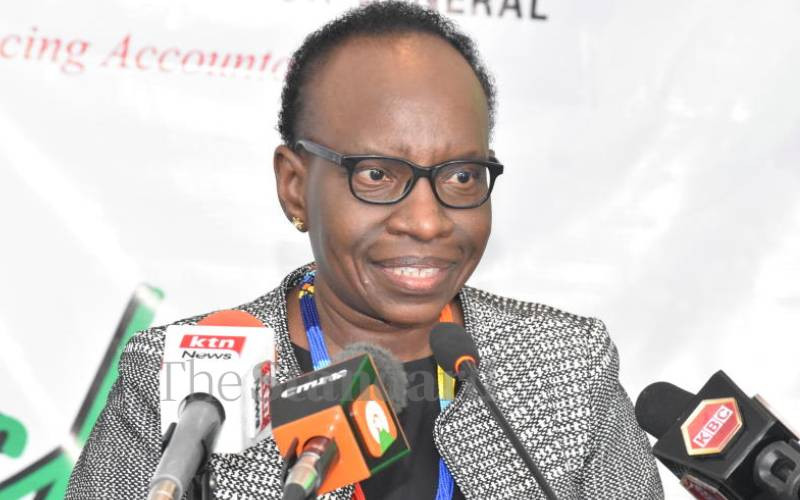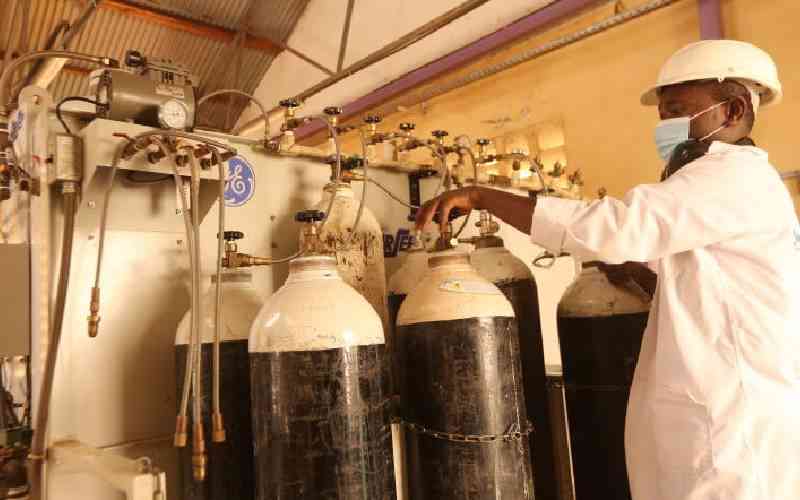The government will spend Sh56.6 billion across different sectors to cushion sections of the population especially those hard-hit by the Covid-19 pandemic.
Yesterday, Treasury Cabinet Secretary Ukur Yatani detailed an eight-point economic stimulus plan that President Uhuru Kenyatta first unveiled in May this year, which meant to save the economy from total collapse.
In May, Uhuru announced a Sh53.7 billion allocation to the stimulus plan. And while reading the Budget statement yesterday, Mr Yatani increased this amount to Sh56.6 billion.
Key focus areas in the plan include creating jobs, especially for young people through the Kazi Mtaani programme. The initiative aims to employ some 200,000 youth from informal settlements in major urban centres.
The State will spend Sh10 billion in the labour-intensive programme, which in its pilot phase has already employed 26,000 people.
Small and Medium Enterprises (SMEs) that have suffered the onslaught of the coronavirus will also be boosted in the recovery package.
Health and education sectors will also draw support from the package. Yatani at the same time said the government is working on a bigger post-Covid-19 economic recovery strategy, a long term plan which will be in line with the country’s development blueprint - Vision 2030.
“The eight-Point Economic Stimulus Programme targets to cushion vulnerable citizens and businesses, particularly those affected by the Covid-19 Pandemic,” Yatani said when he presented the 2020-21 Budget Statement in Parliament.
Road repairs
“The Stimulus Programme will focus on keeping the food supply chains functional while promoting the use of locally produced goods and services, thus securing the livelihoods of daily wage earners. We have set aside Sh56.6 billion to cater for the various thematic areas of this Programme.”
Also, separate from Kazi Mtaani, and aimed at employing young people, is a plan to rehabilitate roads across the country.
Yatani said Sh5 billion will be spent on repairing roads damaged by heavy rains. He told MPs the rehabilitation of access roads and footbridges will heavily rely on local labour and materials.
The government is also looking at spending Sh7.4 billion in education. Among the areas, the money will go to include the construction of additional classes in secondary schools (Sh2.1 billion), Sh1.9 billion for locally fabricated desks, Sh2.4 billion to hire 10,000 intern teachers and Sh300 million to hire ICT interns who will support digital learning in public schools.
The CS noted that to ease access to credit for SMEs, a situation which has been getting worse following the outbreak of the coronavirus pandemic, the government will spend Sh3 billion in operationalising a credit guarantee scheme.
“With reduced turnover and disruptions in the market and supply chains, many Micro, Small Medium Enterprises are unlikely to attract affordable and quality credit under the traditional arrangements,” said Yatani.
Stay informed. Subscribe to our newsletter
He said Treasury has set aside Sh10 billion to fast track verified Value Added Tax refunds. Treasury is also looking to give the health sector a boost through hiring 5,000 health workers at a cost of Sh1.2 billion.
Yatani said he had set aside Sh500 million for buying 20,000 beds and bedclothes for local hospitals. They will be sourced locally.
Also sourced locally will be 50 modern walk-through sanitisers that will be placed at the main hospitals at a cost of Sh25 million.
Treasury has also set aside Sh3 billion to subsidise farm inputs, expected to benefit 200,000 farmers, Sh3.5 billion to expand irrigation at the community and household level and Sh1.5 billion to support horticulture industry to access international markets.
Also benefiting from the stimulus programme is the tourism industry, with hoteliers expected to get a credit facility of Sh3 billion to refurbish hotels. The government is also supporting community-based conservancies.
Yatani also said he has set aside funds for flood control (Sh1 billion), maintenance of water pads and underground tanks in arid areas (Sh850 million) and Sh540 million for tree planting.
 The Standard Group Plc is a
multi-media organization with investments in media platforms spanning newspaper
print operations, television, radio broadcasting, digital and online services. The
Standard Group is recognized as a leading multi-media house in Kenya with a key
influence in matters of national and international interest.
The Standard Group Plc is a
multi-media organization with investments in media platforms spanning newspaper
print operations, television, radio broadcasting, digital and online services. The
Standard Group is recognized as a leading multi-media house in Kenya with a key
influence in matters of national and international interest.
 The Standard Group Plc is a
multi-media organization with investments in media platforms spanning newspaper
print operations, television, radio broadcasting, digital and online services. The
Standard Group is recognized as a leading multi-media house in Kenya with a key
influence in matters of national and international interest.
The Standard Group Plc is a
multi-media organization with investments in media platforms spanning newspaper
print operations, television, radio broadcasting, digital and online services. The
Standard Group is recognized as a leading multi-media house in Kenya with a key
influence in matters of national and international interest.








